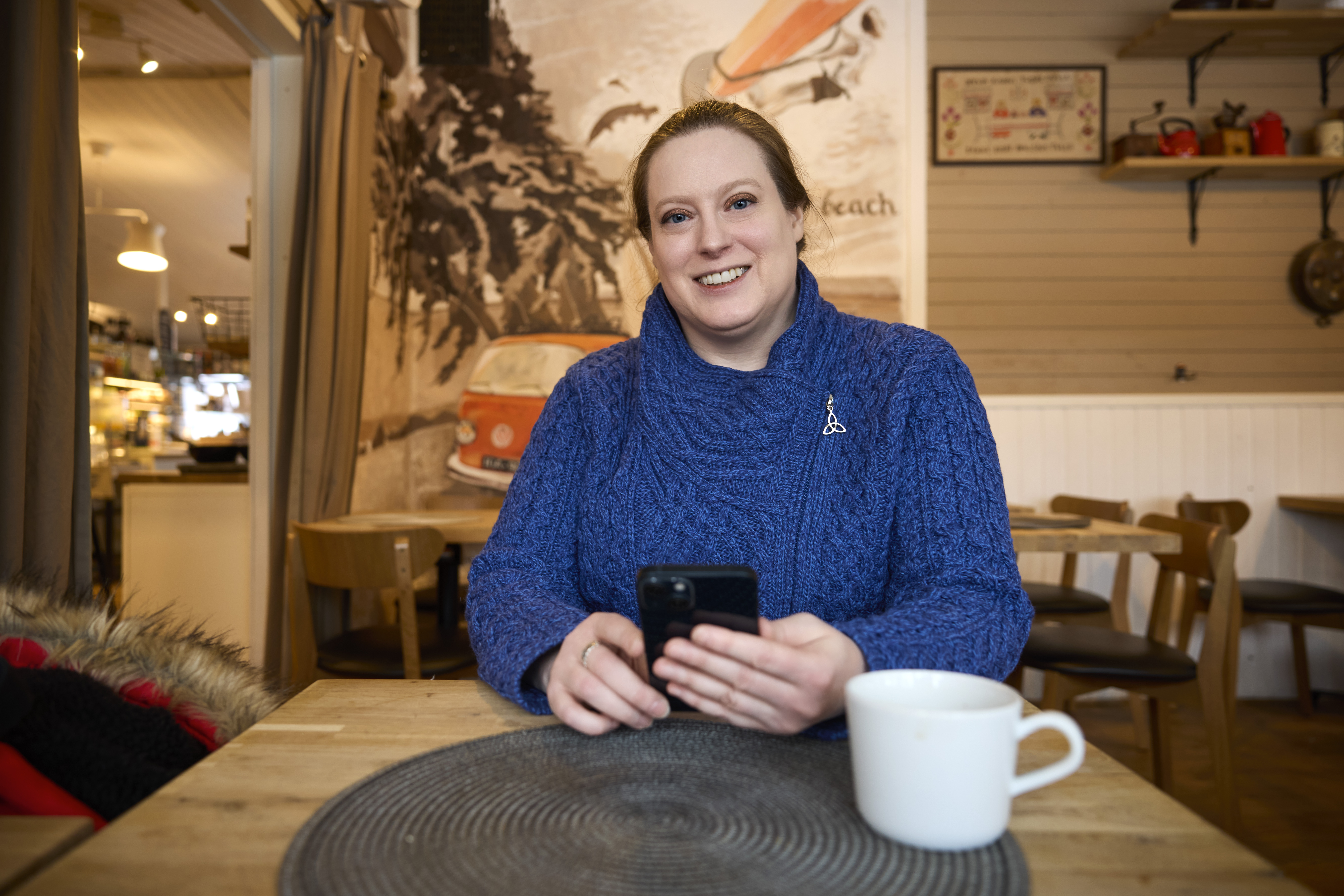
Elina Airaksinen from Oulu turned to the WordDive language courses to help her learn English and Swedish. Thanks to WordDive, Airaksinen passed the Advanced English matriculation examination and the Swedish language proficiency examination at the university of applied sciences.
Of all the subjects at school, languages were always the most challenging for Elina Airaksinen. She was not at all interested in languages in comprehensive school, and when she went to upper secondary school, her language foundation was weak to begin with.
As she was approaching her matriculation examination at the end of her upper secondary studies and hoping to pass the Advanced English exam, Airaksinen started looking for suitable language courses online.
“Sitting in class is not the best way for me to learn. I like to study independently, watch language learning videos, play games and use flashcards. I learn much better with them.”
Airaksinen found a WordDive language course and its game-like structure and multisensory approach to learning was exactly what she was looking for in terms of language learning methods.
A good 15 minutes of studying five days a week
WordDive courses work on smartphones, tablets and computers. After trying out the mobile application, Airaksinen ended up using WordDive on her computer.
She set herself the goal of practising the language five days a week for 20 minutes at a time. Airaksinen managed to hit her daily goal quite well and gradually started learning more vocabulary and phrases.
“I also developed a better grasp of grammar and word order, but for me, learning more words was the most important thing.”
Persistent self-study paid off, and WordDive helped Airaksinen pass the English matriculation exam.
After going on to study computer science at the Oulu University of Applied Sciences, Airaksinen was faced with yet another language challenge: as part of her degree, she was required to prove her proficiency in Swedish by completing the Civil Service Language Proficiency Certificate.
“I did not take the Swedish matriculation exam in upper secondary school and had completely forgotten the language. At the UAS, we briefly reviewed what had been taught in comprehensive school and quickly moved on to more challenging topics. I couldn’t keep up,” says Airaksinen.
Airaksinen decided to turn once more to the familiar courses of WordDive. She began revising the things that had been taught in comprehensive school at her own pace in order to keep up with the university’s language course. And once again, the service helped Airaksinen pass a major language exam and obtain a Language Proficiency Certificate in Swedish.

Learning on the learner’s terms
Airaksinen believes that the best thing about WordDive is that you can clearly see your progress.
“Every time I make progress, the ‘bars’ in the app grow bigger. The app also clearly shows me which elements, such as words, I have learned permanently.”
Airaksinen recommends not starting too many modules at the same time in WordDive, but focusing on a few topics at most and learning them thoroughly.
The learning material in WordDive is linked to everyday life and work. The language course adjusts the pace of learning to the user’s abilities. The study items are repeated until the user has mastered them. Conversely, if the user learns quickly, the amount of content to be practised grows and the same things are repeated less often.
When learning a foreign language, it is important to have the courage to also speak the language. WordDive provides examples of pronunciation, along with useful everyday vocabulary to encourage users to speak the language in real life. Languages are also learned through writing. Airaksinen is especially pleased that, unlike in many other apps, a minor spelling mistake in a word does not prevent progress in WordDive.
Now that she has obtained her Language Proficiency Certificate in Swedish, Airaksinen plans to return to languages at some point.
“When I have more time left over from my studies, I plan to learn more Swedish with WordDive and buy a new licence for studying English.”










